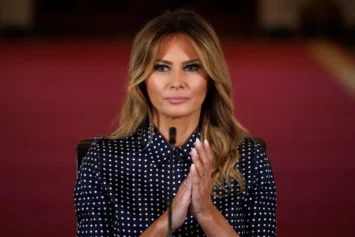Washington is all abuzz about an unprecedented summit this week between President Obama and more than 50 presidents, prime ministers and leaders from across the African continent, as Obama attempts to justify the incredibly high expectations Africans had for him when he was first elected six years ago.
While analysts were busy listing all the objectives the U.S. hopes to accomplish during the next three days, in the background hovered China, which in 2009 surpassed the U.S. as Africa’s largest trading partner.
The economies of the sub-Saharan African nations have exploded in recent years while much of the Western world has regressed or remained flat, making Africa an extremely attractive place for foreign investment.
In the last decade, the U.S. increased exports to the region by 250 percent, now standing at $24 billion. On the flip side, U.S. imports from Africa are now at $39.3 billion, a 53 percent increase over the last decade, according to Al Jazeera America, which also reported that U.S. Secretary of Commerce Penny Pritzker is expected to announce new business deals worth more than $1 billion during the summit.
“The importance of this for America needs to be understood,” Obama said Friday in anticipation of the conference. “Africa is growing, and you’ve got thriving markets and you’ve got entrepreneurs and extraordinary talent among the people there.”
“Africa also happens to be one of the continents where America is most popular, and people feel a real affinity for our way of life,” the president said.
When the summit invitations were sent, four president were excluded: Zimbabwe’s Robert Mugabe, Sudan’s Omar al-Bashir, Eritrea’s Issaias Afeworki, and the Central African Republic’s transitional leader Catherine Samba Panza.
Last week, first lady Michelle Obama told a gathering at a Washington summit for young African leaders, “The blood of Africa runs through my veins.”
“The roots of my family tree are in Africa,” the popular first lady said, as the crowd cheered. “My husband’s father was born and raised in Kenya. Members of our extended family still live there. I have had the pleasure of traveling to Africa many times over the years, including four trips as first lady, and I have brought my mother and my daughters along whenever I can.”
“The blood of Africa runs through my veins, and I care deeply,” Michelle Obama said, as she called the audience her “brothers” and “sisters.”
The occasion was the close of a six-week Mandela Washington Fellowship for Young African Leaders, which brought 500 young Africans to Washington, D.C. The first lady used much of her speech to talk about the status of women in Africa, the U.S. and around the world.
The White House said women’s empowerment would also be a theme at this week’s summit of African leaders.
The first day is formally dedicated to health challenges and climate change, while tomorrow will be the business forum, including leaders from both the public and private sector—in addition to former President Bill Clinton.
The third and final day will be for political discussions on peace and regional stability.
The terrorist groups Boko Haram in the west and Al Shabab in the east will surely be a major topic on Wednesday.
Obama’s first trip to sub-Saharan Africa as president was an overnight stop in Ghana in 2009, but it would be four years before he returned to Africa in 2013, when he made a three-country trip last summer. The White House has said he will likely travel there again before the end of his second term.
Among the Africa-focused initiatives launched by the Obama White House is the new “Power Africa” initiative, which aims to leverage billions in private sector commitments to bring electricity to 20 million households in sub-Saharan Africa.
While China has become a major business partner in Africa, American officials are keen to draw a distinction between Chinese and American investment. They say that although Beijing may spend more money, the Chinese are focused more on extracting resources from Africa for their own purposes. In contrast, they say, the U.S. is trying to boost African capacity and building long-term economic relationships.
“We do believe we bring something unique to the table,” Ben Rhodes, Obama’s deputy national security adviser, told the Huffington Post. “We are less focused on resources from Africa and more focused on deepening trade and investment relationships.”
Kate Almquist Knopf, director of the Africa Center for Strategic Studies, said on an Al Jazeera America program that the summit is “a recognition of the growing importance of Africa to the United States. The fact that there are over a billion people on the continent, and population growth there is likely to quadruple over the next decades, it represents an increasingly important area for us economically, for security reasons, and for transnational and global issues.”
Amadou Sy, a senior fellow at the Brookings Africa Growth Initiative, said a major focus needs to be jobs for young people, as Africa has a young population that is growing quickly and a middle class that is expanding.
He said that traditionally U.S. interests in the Africa have had to do with the oil and gas sectors. But now there’s a lot of potential in other sectors, such as information, technology, communications, and retail opportunities.
“The expanding middle class is a market that we cannot afford to ignore for our own economy’s sake,” Knopf said.


